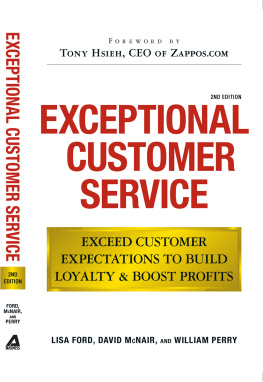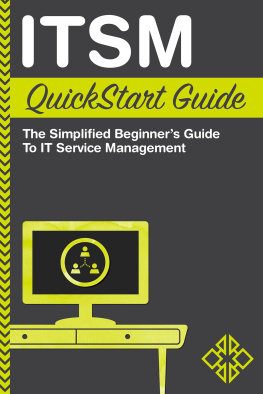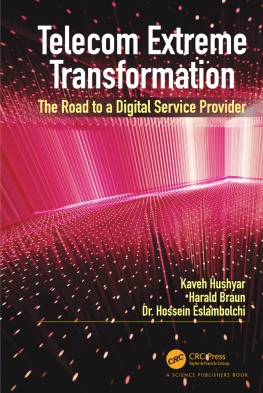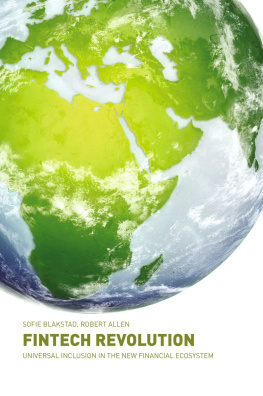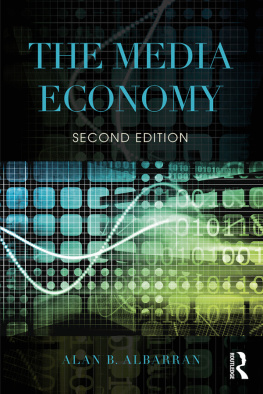
Technologies of Consumer Labor
This book documents and examines the history of technology used by consumers to serve oneself. The telephones development as a self-service technology functions as the narrative spine, beginning with the advent of rotary dialing eliminating most operator services and transforming every local connection into an instance of self-service. Today, nearly a century later, consumers manipulate 09 keypads on a plethora of digital machines. Throughout the book Palm employs a combination of historical, political-economic, and cultural analysis to describe how the telephone keypad was absorbed into business models across media, retail, and financial industries as the interface on everyday machines including the ATM, cell phone, and debit card reader. He argues that the naturalization of self-service telephony shaped consumers attitudes and expectations about digital technology.
Michael Palm is Assistant Professor of Media and Technology Studies in the Department of Communication Studies at University of North Carolina at Chapel Hill, USA.
Routledge Research in Cultural and Media Studies
For a full list of titles in this series, please visit www.routledge.com.
81 The Emotional Life of Postmodern Film
Affect Theorys Other
Pansy Duncan
82 Social Memory Technology
Theory, Practice, Action
Karen Worcman and Joanne Garde-Hansen
83 Reviving Gramsci
Crisis, Communication, and Change
Marco Briziarelli and Susana Martinez Guillem
84 Motherhood in the Media
Infanticide, Journalism, and the Digital Age
Barbara Barnett
85 The Pedagogies of Cultural Studies
Edited by Andrew Hickey
86 Intimacy on the Internet
Media Representation of Online Intimacy
Lauren Rosewarne
87 The DIY Movement in Art, Music and Publishing
Subjugated Knowledges
Sarah Lowndes
88 Advertising and Public Memory
Social, Cultural and Historical Perspectives on Ghost Signs
Edited by Stefan Schutt, Sam Roberts and Leanne White
89 Postfeminist Celebrity and Motherhood
Brand Mom
Jorie Lagerwey
90 Technologies of Consumer Labor
A History of Self-Service
Michael Palm
First published 2017
by Routledge
711 Third Avenue, New York, NY 10017
and by Routledge
2 Park Square, Milton Park, Abingdon, Oxon OX14 4RN
Routledge is an imprint of the Taylor & Francis Group, an informa business
2017 Taylor & Francis
The right of Michael Palm to be identified as author of this work has been asserted by him in accordance with sections 77 and 78 of the Copyright, Designs and Patents Act 1988.
All rights reserved. No part of this book may be reprinted or reproduced or utilised in any form or by any electronic, mechanical, or other means, now known or hereafter invented, including photocopying and recording, or in any information storage or retrieval system, without permission in writing from the publishers.
Trademark notice: Product or corporate names may be trademarks or registered trademarks, and are used only for identification and explanation without intent to infringe.
Library of Congress Cataloging-in-Publication Data
Names: Palm, Michael, 1973 author.
Title: Technologies of consumer labor: a history of self-service / by Michael Palm.
Description: New York: Routledge, [2017] | Series: Routledge research in cultural and media studies; 90 | Includes bibliographical references and index.
Identifiers: LCCN 2016013412 (print) | LCCN 2016020900 (ebook)
Subjects: LCSH: Technological innovationsSocial aspects. | Telephone systemsAutomation. | Self-service (Economics) | Service industriesTechnological innovations.
Classification: LCC HM846 .P35 2017 (print) | LCC HM846 (ebook) | DDC 303.48/3dc23
LC record available at https://lccn.loc.gov/2016013412
ISBN: 978-1-138-18647-7 (hbk)
ISBN: 978-1-315-64383-0 (ebk)
Typeset in Sabon
by codeMantra
Lovingly dedicated with admiration and gratitude to the memory of Herman and Clara Margulies
I am honored to join the ranks of authors who have acknowledged the mentorship of Andrew Ross. I continue to emulate Andrew as an advisor, a scholar, and a colleague. Toby Miller was an exacting reader and interlocutor throughout graduate school, and the phrase consumer labor was his suggestion. Anna McCarthy, Marita Struken, and Dan Schiller rounded out my all-star jam of a dissertation committee, each providing key insights and encouragement. In American Studies at NYU, I got schooled by a humbling array of teachers and colleagues. Along the way Pat McCreerey and Rich Blint became dear friends. Through my involvement with GSOC/UAW, I met and work with fascinating and inspiring scholars, activists, and organizers from departments across NYU and from campuses around the world. Among this wealth of comrades, Susan Valentine and Monika Krause helped me through intense periods of personal as well as professional turmoil.
At UNC, Larry Grossberg has been a mentor and a friend, and I could not ask for a better cohort of colleagues. Renee Alexander-Craft, Sarah Dempsey, Julia Haslet, Chris Lundberg, Tony Perucci, Sarah Sharma, Kumi Silva, and Neal Thomas have all buoyed me institutionally and challenged me intellectually. Tony in particular has been there whenever Ive needed a hand or an ear, a meal or a drink. Every year at UNC has brought more brilliant PhD students to work with, for, and alongside, including Drs. Ali Colleen Neff, Erin Arrizi, Rolien Hoyng, and Carey Hardin. Beyond UNC, Bill Maurer and Lana Swartz helped me realize the contemporary stakes of my historical research, and Vicki Mayer has been a constant source of support. Jack Bratich, Christina Dunbar-Hester, Rebekah Moore, Jeremy Packer, and Winnie Poster stepped up with feedback and friendship at crucial moments.
It saddens me not to be able to share the publication of this book with Doc and Joan Palm, Herman and Clara Margulies, and Joe Sterbenc, but I relish the chance to thank Nancy Palm, Edward Puncher, Sidney and baby Joey; Jeff Sterbenc, Nicole Neff, Will, Henry and Katie; Jean Sterbenc; Ian Knox and Chad Robinson; Jina Valentine, Tom and Joan Valentine, and Sylvan Palm-Valentine. Much love and gratitude to you all, my family.
Courtney Berger, Jonathan Sterne, Eric Zinner, and four anonymous reviewers provided helpful feedback and encouragement. Finally, thank you Christina Kowalski, Felisa Salvago-Keyes, and everyone at Routledge for guiding this book down the pipeline.
Raleigh-Durham International (RDU) is a typical midsize American airport. Outside the main terminal, several banks of trim silver kiosks line the path to short-term parking. Charge cards are inserted, then quickly removed; PINs are entered, then enter is pressed. Receipts are accepted, declined, or ignored. A row of tollbooths stands guard at RDUs perimeter, armed with kiosks programmed to accept validated tickets as well as charge cards. On average self-payment kiosks cost upward of $100,000 and pay for themselves in eighteen months.1 Annually, consumers in the U.S. spend more than two trillion dollars using self-check out terminals.2 Recently the kiosks at RDU have been upgraded with sleeker casings and touch screens, and they have been stripped of their branding. An


